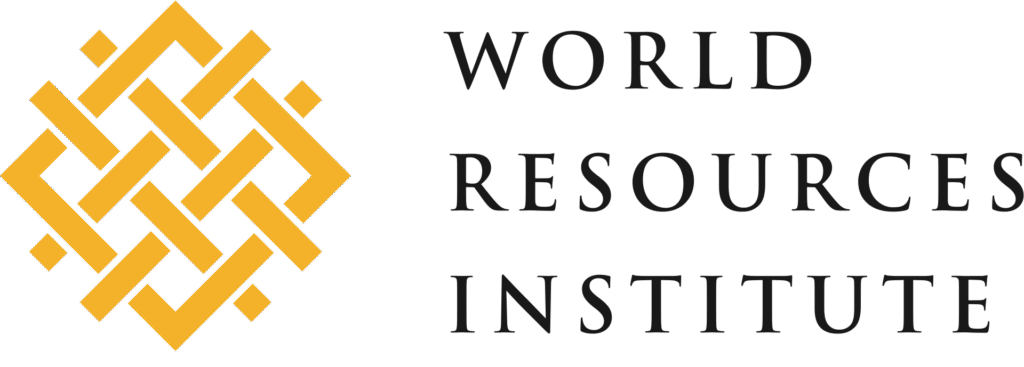Our main funding comes from UK Aid which aims to support investment in sustainable energy and transport systems to meet development priorities in the Global South. We and they recognise that we can achieve an even large positive impact on the world if our work attracts the support of major partners around the globe. These partners could be governments beyond the Global South, NGOs, charitable foundations and philanthropic organisations or individuals.
Partnership is at the core of what we do. We cannot succeed without it. We celebrate it in our recent brochure (right) and below. We are keen to meet new partners to accelerate the response to the Climate Crisis and the achievement of Sustainable Growth for countries in the Global South. We hope you will be inspired to join us.
Overview of CCG activites 2021-2024:
Current Partnerships
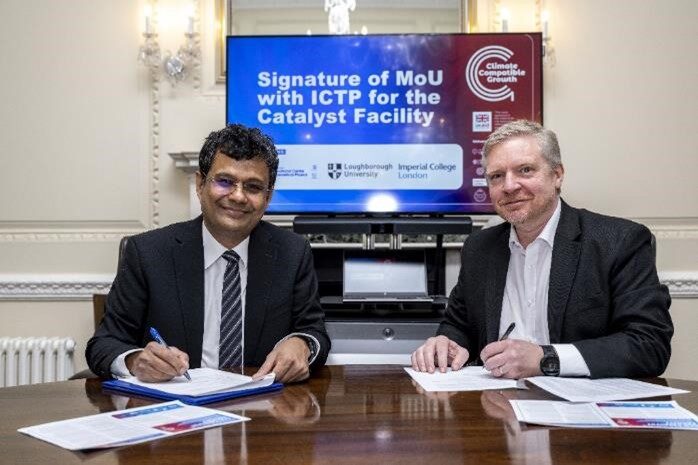
International Centre for Theoretical Physics (ICTP-UNESCO): Our partnership with the International Centre for Theoretical Physics (ICTP) is crucial in advancing sustainable energy and climate science, particularly in the Global South. Recently formalized through an MoU signed in January 2024 at Imperial College London, this collaboration focuses on the Catalyst Facility, a fund dedicated to supporting education, capacity-building, and research fellowships. This partnership not only enhances global climate initiatives but also aims to develop international master’s programmes and establish an institute for climate and sustainability, with long-term benefits extending to 2064 and beyond.
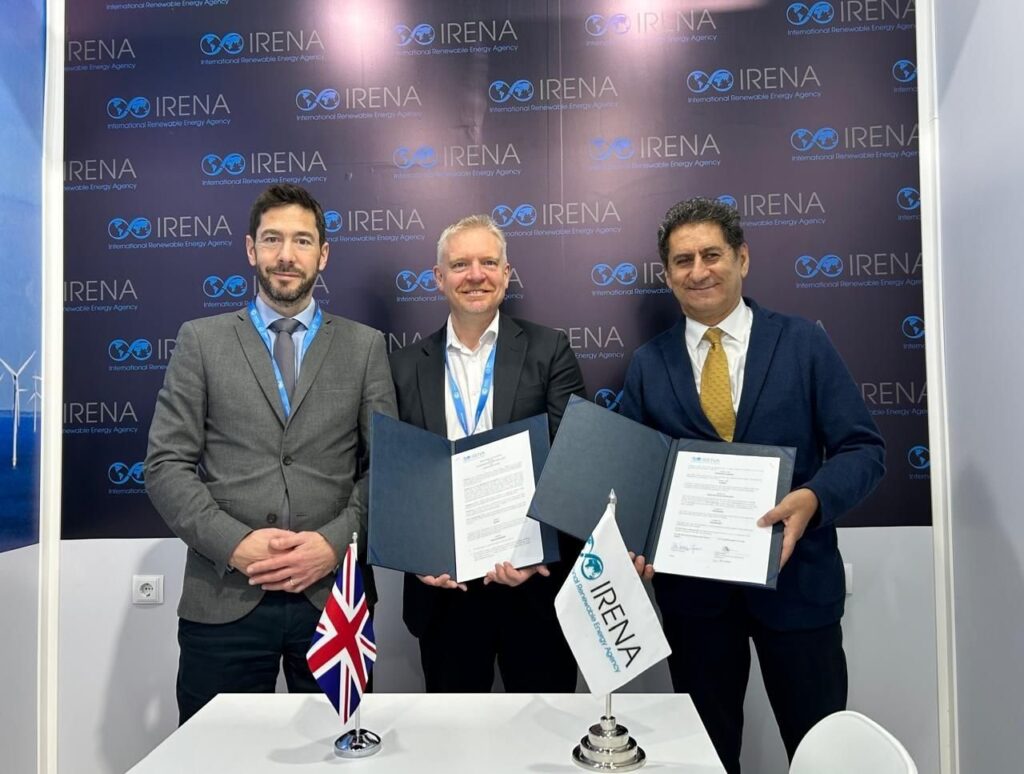
International Renewable Energy Agency (IRENA): Our partnership with the International Renewable Energy Agency (IRENA) is focused on enhancing global capacity in sustainable energy planning. Through this collaboration, we organize and participate in capacity-building events, supported by IRENA’s expertise and tools, such as FlexTool and OnSSET. We also work together to update and expand educational resources, share critical datasets, and promote the adoption of strategic energy planning principles. This partnership is instrumental in empowering emerging and developing countries to advance their energy planning capabilities.
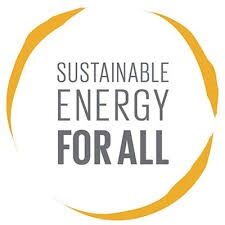
Sustainable Energy for All (Se4All) :
Our partnership with Sustainable Energy for All (SEforALL) is dedicated to advancing global capacity in energy modelling and planning. Together, we develop and deliver programs designed to enhance the skills of energy planners, analysts, and policymakers in our partner countries. SEforALL plays a crucial role in creating and providing training materials and knowledge products that support effective energy transition strategies. Through collaborative workshops, conferences, and webinars, we facilitate knowledge sharing and networking, empowering stakeholders to drive sustainable energy solutions. Notably, SEforALL has developed the “Geospatial Data Management for Energy Access Modelling and Planning” course in collaboration with Kartoza, which introduces GIS software for managing data. Additionally, SEforALL has partnered with KTH Royal Institute of Technology (also a member of the CCG consortium) to offer the “Geospatial Clean Cooking Access Modelling Using OnStove” course, which utilizes the open-source OnStove tool to identify optimal clean cooking solutions based on cost and benefits
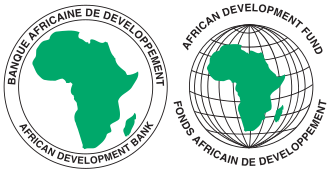
African Development Bank (AfDB): Our collaboration with the African Development Bank (AfDB) and its Sustainable Energy Fund for Africa (SEFA) is central to advancing energy transitions across the continent. Through this partnership, we facilitate research collaboration and capacity-building initiatives aimed at unlocking private sector investments in renewable energy. Together, we develop and implement strategies that support Just Energy Transition Planning, empowering African countries to achieve universal access to sustainable energy. This partnership is crucial in aligning our efforts with SEFA’s mission and the broader goals of climate-compatible growth.

International Atomic Energy Agency (IAEA): Our partnership with the International Atomic Energy Agency (IAEA) is an effort to advance sustainable energy planning. Together, we have released three key energy modelling tools—MAED, FINPLAN, and EBS—as open resources. We collaborate closely on the development of these tools, creating teaching materials, online courses, and organizing capacity-building events. This partnership enhances global access to cutting-edge energy planning tools and supports countries in making informed, technology-neutral decisions to achieve sustainable development goals.
Politecnico di Milano: The collaboration between CCG and Politecnico di Milano has made a notable impact in the field of energy modelling through the introduction of the “Input-Output Analysis and Modelling with MARIO” course. This course equips users with fundamental skills in quantitative impact assessment methods and models, specifically designed to evaluate the environmental and economic effects of technological or policy interventions from a Life Cycle perspective. By incorporating this course into CCG’s OpenLearn Collection, Politecnico di Milano contributes to building robust local capacities in the Global South. This partnership highlights a commitment to providing accessible, high-quality training to support sustainable energy development globally.
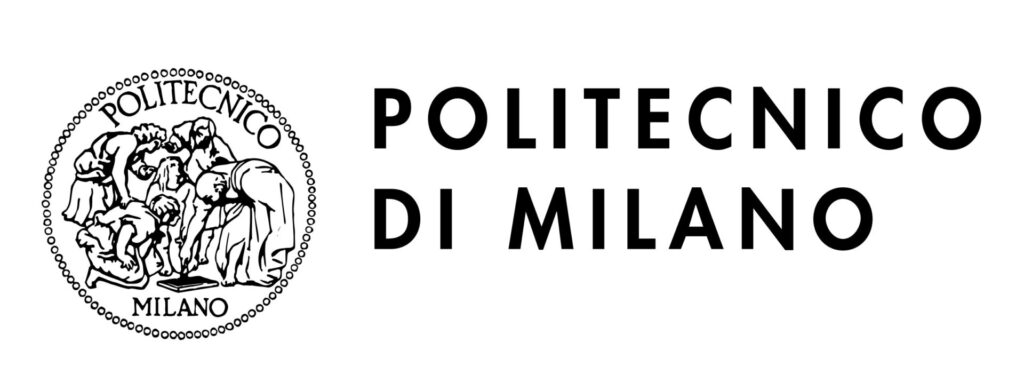

2050 Pathways Platform: CCG deepened its partnership with the 2050 Pathways Platform, significantly contributing to the expansion of our Capacity Building programme. The 2050 Pathways Platform provided substantial financial support, offering bursaries that enabled a wider range of students to participate in our training events. This partnership played a crucial role in covering travel and subsistence expenses for a significant portion of our 239 students, helping to ensure that more participants, including a notable number of women, could benefit from our expanded educational offerings.
World Resources Institute (WRI): The partnership with the World Resources Institute (WRI) has significantly advanced energy modelling training with the addition of new courses to CCG’s OpenLearn Collection. Notably, WRI’s “Energy Access Explorer” course helps planners identify key areas for energy expansion, enhancing local capacity in the Global South. WRI also contributes by bringing trainers to CCG’s energy modelling platforms, further supporting hands-on capacity building. This initiative aligns with COP28’s focus on developing in-country expertise to reduce reliance on costly consultants, ensuring a lasting impact through freely accessible, open-source training.
